"I absolutely want to use this article in a way to teach my journalism students how it is you can develop sources, why it's important to develop sources, why it's important to develop trust, not only with your sources but with your editors," Lowe said.
Lowe was unequivocal in his praise for the manner in which SI and Jenkins handled James' news: "Journalism is telling stories about people who matter to lots of people and providing an audience with news that is compelling and factual. This is all of that in abundance."
I was working at The Virginian-Pilot in the early '90s and profiling a commonwealth's attorney becoming a judge. Upon seeing that I had written it in the form of a letter from the very public official to his absent father, my editor made me call the attorney and read it to him word for word. The attorney stopped me after a few paragraphs. He said he trusted me. He would be fine reading it the next day in the newspaper at the same time that everyone else did.
Not all my colleagues at the time supported the first-person approach. Certainly, not everyone else agrees with SI's decision to essentially allow James the chance to tell his own story -- and very much so better than the basketball great did with "The Decision" on ESPN fours years ago. The other three "experts" cited in Wolfley's column are definitely not unequivocal with praise for SI's decision making, so much so I seem like a cheerleader by comparison. Be that as it may, here's more good reading on the matter from Sports Illustrated itself as well as The Wall Street Journal, Advertising Age, Deadspin and The Plain Dealer in Cleveland. As I told Wolfley, this will all make for great classroom discussion and teachable moments for me and my students.
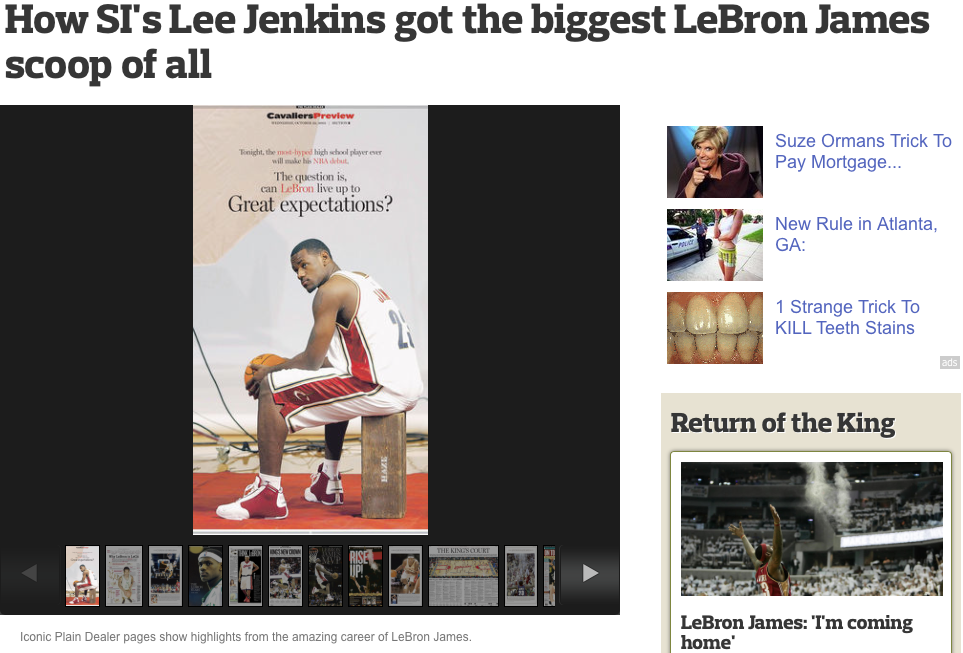
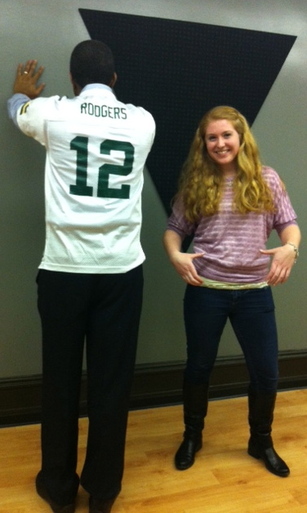
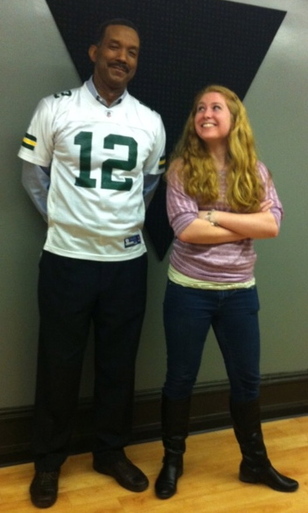
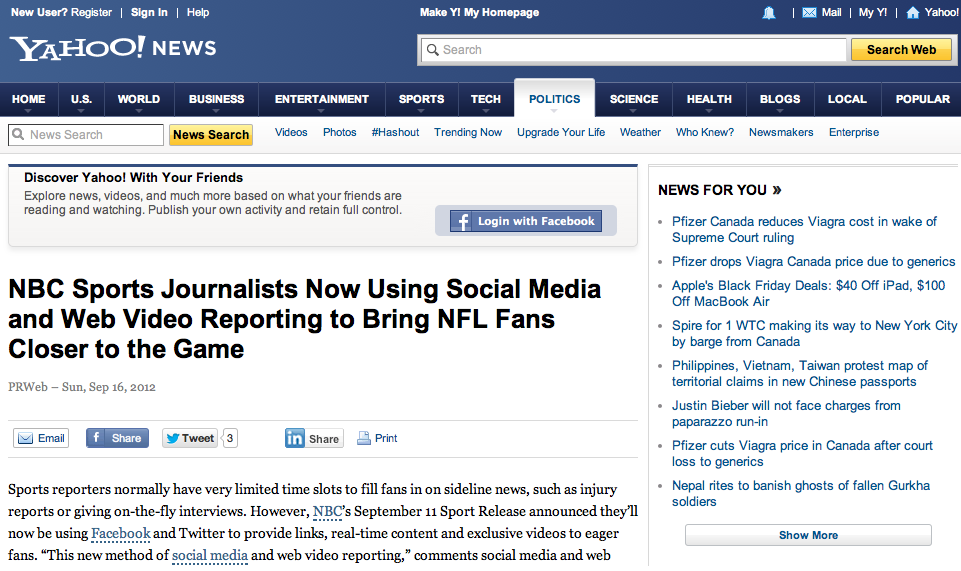

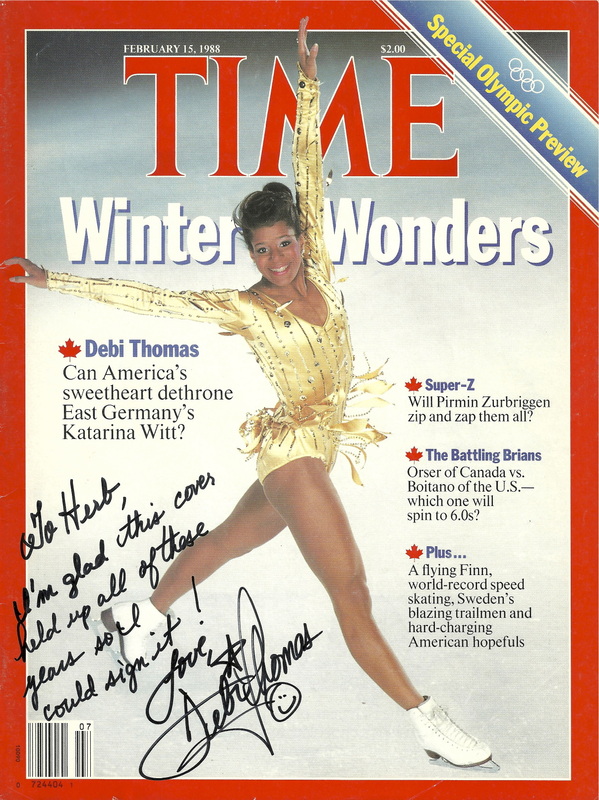
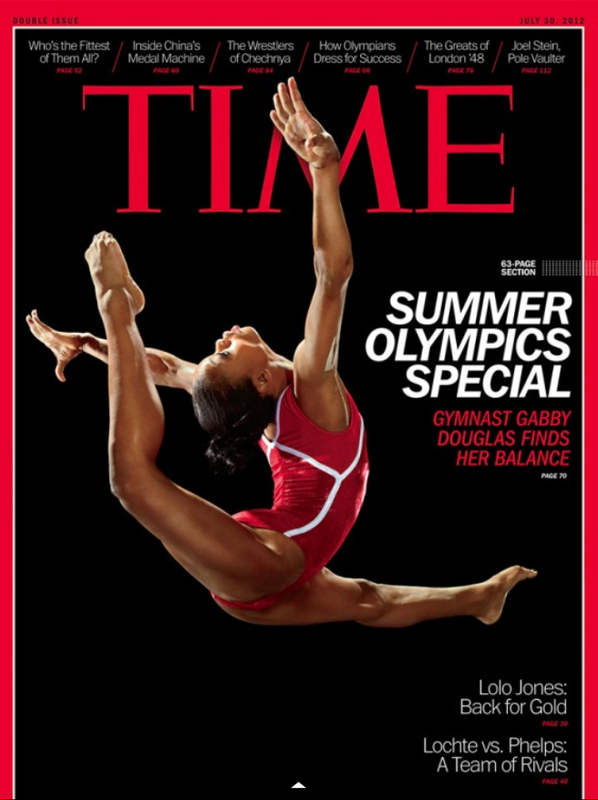
 RSS Feed
RSS Feed
